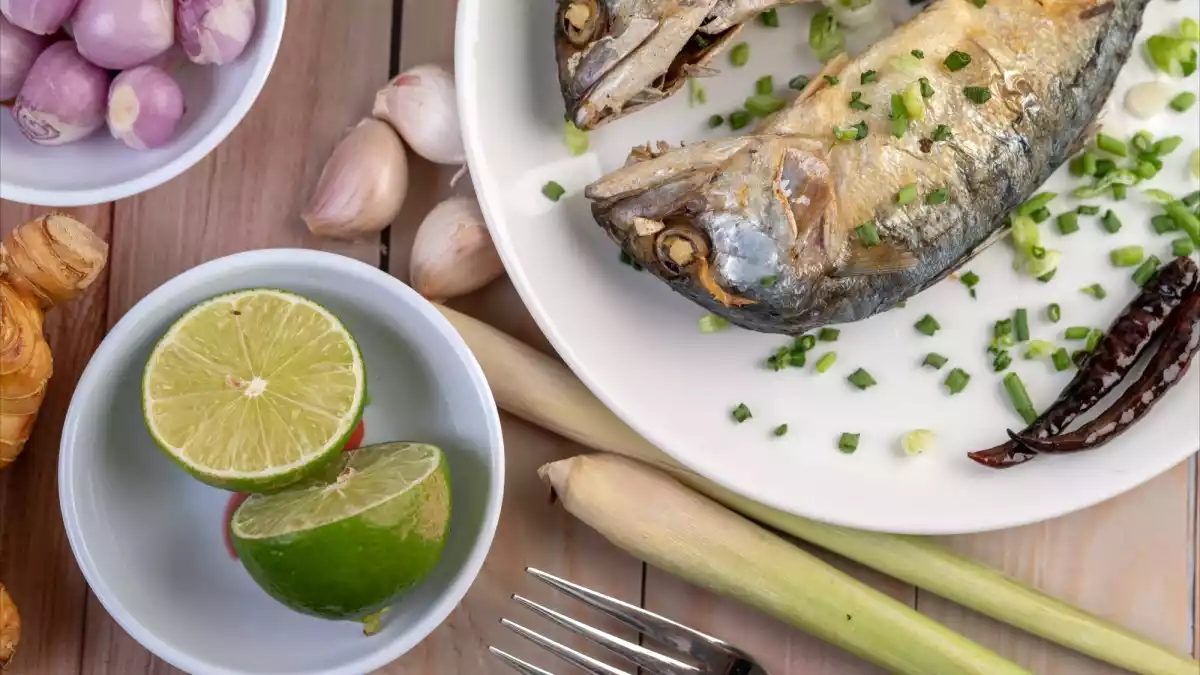The lemon trick that changes the taste of your fish

A simple squirt of lemon over the fish, an almost automatic gesture in the kitchen, can completely transform the experience at the table. Suddenly, the taste seems fresher, the smell less intense, the texture firmer and more pleasing to the palate. But why does this happen? What's behind this classic and intuitive combination?
More than tradition or a chef's trick, the use of lemon in fish preparation is explained by the chemistry of food and the way our brains interpret flavor. The citric acid present in lemon not only interacts with the flesh of the fish on a molecular level, but also modulates our sensory perception - making the meal lighter, more balanced and tastier.
Below, you'll understand how this reaction happens, why it works so well, and how to use this trick intelligently to enhance your fish dishes.
Lemon in fish: it's not just tradition, it's chemistry
Putting lemon on fish before or after grilling, roasting or serving it raw (as in ceviches) is not just a matter of custom. The citric acid in lemon breaks down proteins on the surface of the fish and alters the pH of the flesh, bringing about real changes in taste and texture.
According to Harold McGee, in the classic On Food and Cooking, lemon juice acts in a similar way to thermal cooking: it denatures the proteins, causing them to firm up and opacify - a process visible in ceviche, for example. In addition, lemon neutralizes bitter compounds and "raw fish" aromas, making the taste fresher and more balanced
Why does the fish feel "lighter" with lemon?
The acid in the lemon activates specific taste receptors, especially those responsible for acidity and enhancing the umami flavor (naturally present in fish). This contrast makes the palate perceive the dish as "cleaner", juicier and even sweeter in some cases.
In addition, the citrus aroma masks sulphurous compounds or amines that cause that strong smell characteristic of fish - making the meal more enjoyable even for those who aren't fans of the sea's strong flavor.
How to use the lemon trick the right way
Before cooking: a few drops can marinate the fish for 10 to 15 minutes and help firm up the flesh. Avoid leaving it too long to avoid overcooking.
During preparation: squeezing a little lemon while grilling or roasting gives a touch of acidity without robbing the fish of its flavor.
After preparation: only add fresh lemon when serving to enhance the flavors without bitterness.
Does it work with all types of fish?
Yes, but the effect varies. On fatter fish (such as salmon), lemon balances the oiliness. In white and delicate fish (such as sole or tilapia), it enhances freshness. Even seafood such as shrimp or squid benefit from the acidic touch.
Convinced to use lemon on fish?
The lemon trick is not just a detail: it changes the chemical structure and flavor of the fish. A simple, accessible and powerful touch that turns any seafood meal into something special.
Other articles that may interest you
 Mirella Mendonça
Mirella Mendonça
Comments